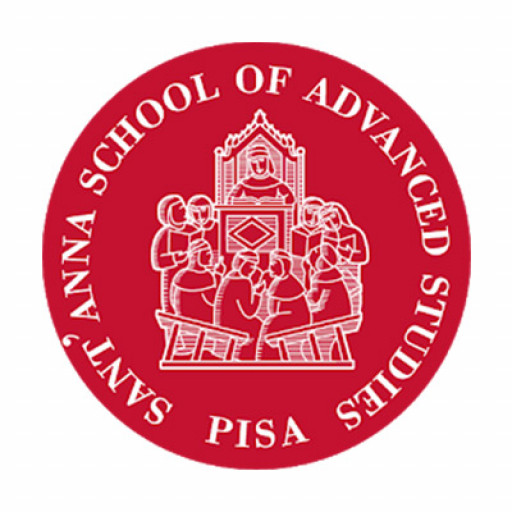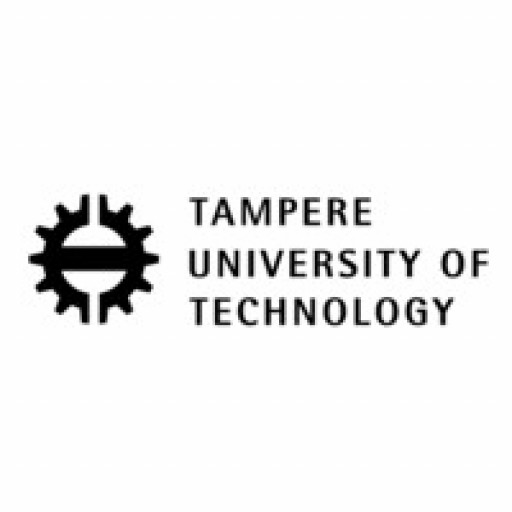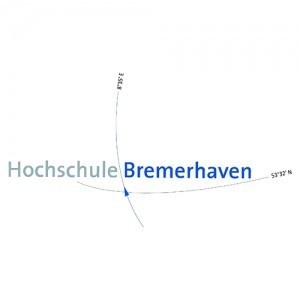Photos of university / #tudelft
The MSc Embedded Systems at Delft University of Technology offers an advanced, multidisciplinary education that prepares students to design, analyze, and develop complex embedded hardware and software systems. This program is ideal for students passionate about creating intelligent systems that are embedded in everyday devices, from consumer electronics to industrial automation and autonomous vehicles. The curriculum combines core knowledge in embedded hardware design, software development, real-time computing, systems integration, and control engineering, providing a comprehensive understanding of both theoretical foundations and practical applications.
Throughout the program, students engage with cutting-edge topics such as embedded system architecture, low-power design, security and privacy in embedded systems, and the Internet of Things (IoT). The program emphasizes hands-on experience through laboratory assignments, projects, and collaborations with industry partners, enabling students to develop practical skills alongside their theoretical knowledge. Delft’s close ties with high-tech companies and research institutes facilitate internships and project collaborations, offering valuable insights into current industry challenges and innovations.
Students also have the opportunity to specialize through electives in areas like robotics, machine learning, cyber-physical systems, or telecommunication systems, allowing them to tailor their education to specific interests and career goals. The program promotes an innovative mindset, emphasizing problem-solving, system thinking, and interdisciplinary collaboration, which are essential skills in the rapidly evolving field of embedded systems.
Graduates of the MSc Embedded Systems are well-equipped for careers in research, development, and engineering roles across various high-tech sectors, including electronics, automotive, aerospace, healthcare, and consumer electronics. The program also provides an excellent foundation for pursuing doctoral studies or entrepreneurial ventures in embedded and cyber-physical systems. With a focus on both fundamental principles and emerging trends, the MSc Embedded Systems at Delft University of Technology aims to prepare students to lead the development of the next generation of intelligent, embedded devices that shape our modern world.
The Embedded Systems Master’s programme at Delft University of Technology offers students a comprehensive and in-depth education in the design, development, and implementation of embedded systems. This programme is designed to equip students with the advanced knowledge and practical skills necessary to tackle complex challenges in the field of embedded electronics, software, and hardware integration. Throughout the course, students will explore the theoretical foundations of embedded systems, including real-time computing, hardware-software interaction, and energy-efficient system design, while also gaining hands-on experience through numerous laboratory exercises and project work.
The curriculum covers a wide range of topics such as microcontrollers and embedded processors, sensors and actuators, communication protocols, firmware development, safety and security aspects, and advanced topics like Internet of Things (IoT) and embedded machine learning. Students will learn to develop reliable, scalable, and energy-efficient embedded solutions that can be integrated into a variety of domains, including automotive, industrial automation, healthcare, consumer electronics, and more. The programme emphasizes a multidisciplinary approach, combining electrical engineering, computer science, and systems engineering, to prepare graduates for the diverse challenges faced in modern embedded environments.
Research-led teaching is a core aspect of the programme, giving students access to state-of-the-art laboratories and facilities. They will work closely with experienced faculty members on cutting-edge projects and research initiatives, fostering innovation and critical thinking. The master’s programme can be tailored to individual career goals, with options to specialise in areas such as wireless embedded systems, real-time operating systems, or secure embedded hardware. Furthermore, the programme encourages international collaboration, intercultural exchange, and participation in internships, providing students with valuable global perspectives and industry connections.
Upon graduation, students will possess a strong theoretical foundation combined with practical expertise, enabling them to design and develop embedded systems that meet the highest standards of quality, safety, and efficiency. They will be well-prepared to pursue careers in research and development, system engineering, or entrepreneurial ventures in the embedded systems domain. The Embedded Systems Master’s programme at Delft University of Technology is thus an excellent choice for those seeking a challenging and rewarding education in a rapidly evolving technological landscape.
Admission requirements
See: www.tudelft.nl/msc
Other requirements
- minimum kennis (ISPAC: overige vereisten) Zie www.tudelft.nl/msc
- minimum kennis (ISPAC: overige vereisten) See: www.tudelft.nl/msc
- vooropleiding (ISPAC: vereiste vooropleiding) BScgraad (of zijn equivalent) van een hoge kwaliteit en niveau. Het hoofdonderwerp van desbetreffende Bachelor moet overeenkomen met het beoogde TU-Delft MSc-programma.
- vooropleiding (ISPAC: vereiste vooropleiding) BSc degree EE or CS (or equivalent) of a high quality and level. The main subject of the BSc study should match the envisaged TU Delft MSc-programme.
Funding options for the Embedded Systems MSc program at Delft University of Technology include a variety of scholarships, grants, and financial aid designed to support international and Dutch students. Prospective students are encouraged to explore national scholarships such as the Holland Scholarship, which targets talented students from outside the European Economic Area, offering a one-time grant to help cover living expenses and tuition fees. The TU Delft Excellence Scholarship is another significant opportunity, providing full or partial tuition fee waivers to outstanding students, both from within the EU and internationally, based on academic excellence and motivation.
Additionally, students can apply for the Orange Tulip Scholarship Programme, which aims to attract talented students from select countries. This scholarship program offers partial financial support, including tuition fee discounts and sometimes monthly stipends, making studies more accessible. European students might also qualify for the Erasmus+ program, which offers mobility grants for student exchanges within Europe, though this is more applicable for exchange semesters rather than full degree studies.
Apart from external scholarships, many students finance their studies through part-time work, internships, or student loans. TU Delft provides a range of on-campus jobs and research assistant positions that can help students offset living costs. Dutch students might access government student loans and grants, while international students often resort to loans from their home countries or private lenders.
International students are advised to check with their home country’s scholarship agencies, as many countries have bilateral agreements with the Netherlands that include financial support schemes. Moreover, the university's financial aid office offers personalized advice and guidance on available funding avenues, application procedures, and deadlines.
Students are also encouraged to consider the costs associated with living in Delft, which can be managed through careful budgeting and by taking advantage of student discounts available locally. The university itself maintains a comprehensive page dedicated to financial planning, including estimated tuition fees, living expenses, and practical tips on securing funding.
In summary, while the Embedded Systems MSc program at TU Delft is a high-quality and competitive degree, prospective students have numerous financial support options, including government, university, and private scholarships, as well as work opportunities and loans, all designed to facilitate successful completion of the program without undue financial hardship.
The Embedded Systems master’s program at Delft University of Technology (TU Delft) is a comprehensive and specialized graduate degree designed to prepare students for advanced roles in the development, design, and management of embedded systems. Embedded systems are computer systems with a dedicated function within a larger mechanical or electrical system, often characterized by real-time computing constraints. This program provides a deep understanding of hardware-software co-design, embedded programming, and system integration, preparing graduates to innovate in industries such as robotics, automotive, aerospace, consumer electronics, and telecommunications.
The program curriculum covers essential topics including embedded hardware architecture, software development for embedded devices, real-time systems, communication protocols, and safety-critical systems. Students learn to design efficient and reliable embedded solutions by applying principles of electronics, software engineering, and system integration. TU Delft emphasizes a practical approach, encouraging students to work on real-world projects, often in collaboration with industry partners, fostering skills that are directly applicable in the professional environment.
Students have access to state-of-the-art laboratories equipped with advanced tools for embedded system design, testing, and prototyping. The program’s coursework includes both theoretical modules and practical assignments, ensuring a balanced education that emphasizes both technical knowledge and hands-on experience. Collaboration with industry experts and participation in internships are integral parts of the curriculum, providing students with insights into current industry challenges and practices.
The faculty at TU Delft includes leading researchers and practitioners in the field of embedded systems, offering mentorship and cutting-edge knowledge. The university also organizes seminars, guest lectures, and workshops to deepen students’ understanding and expand their professional network. The program often attracts international students, creating a diverse and dynamic learning environment.
Graduates of the Embedded Systems master’s program are well-equipped to pursue careers as embedded systems engineers, system architects, software developers, or project managers. Many alumni find employment in high-tech companies, start their own ventures, or further their studies toward PhDs. The program’s focus on innovation, technical excellence, and industry relevance makes it a highly regarded qualification within the field of embedded systems engineering.
No specific information about the program duration, admission requirements, or language of instruction is provided here; for detailed, official information, prospective students should consult the TU Delft official website.










